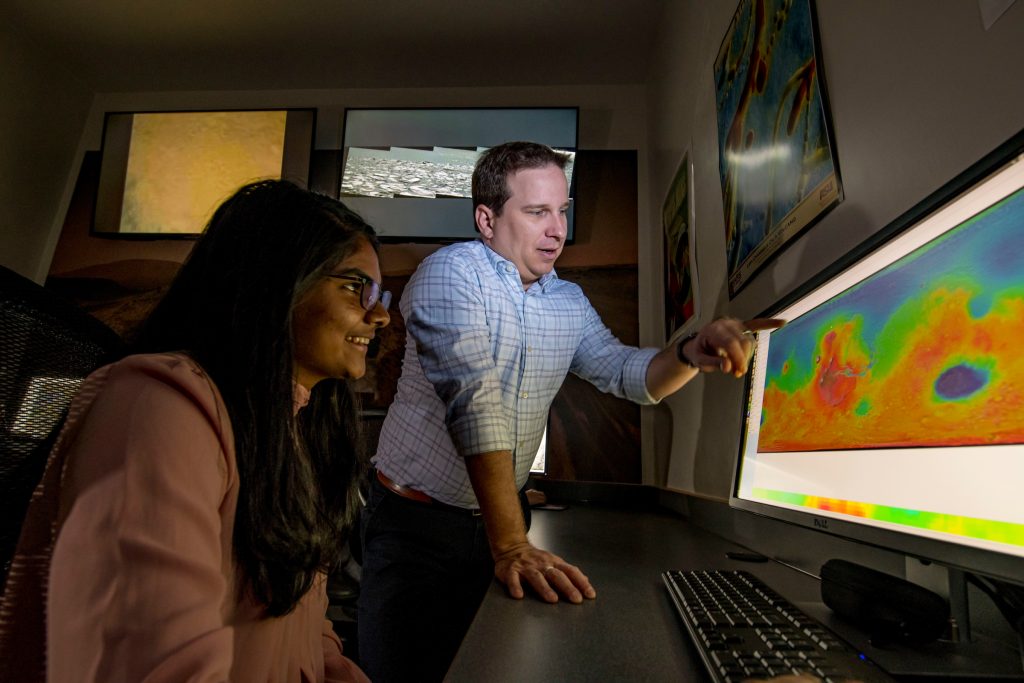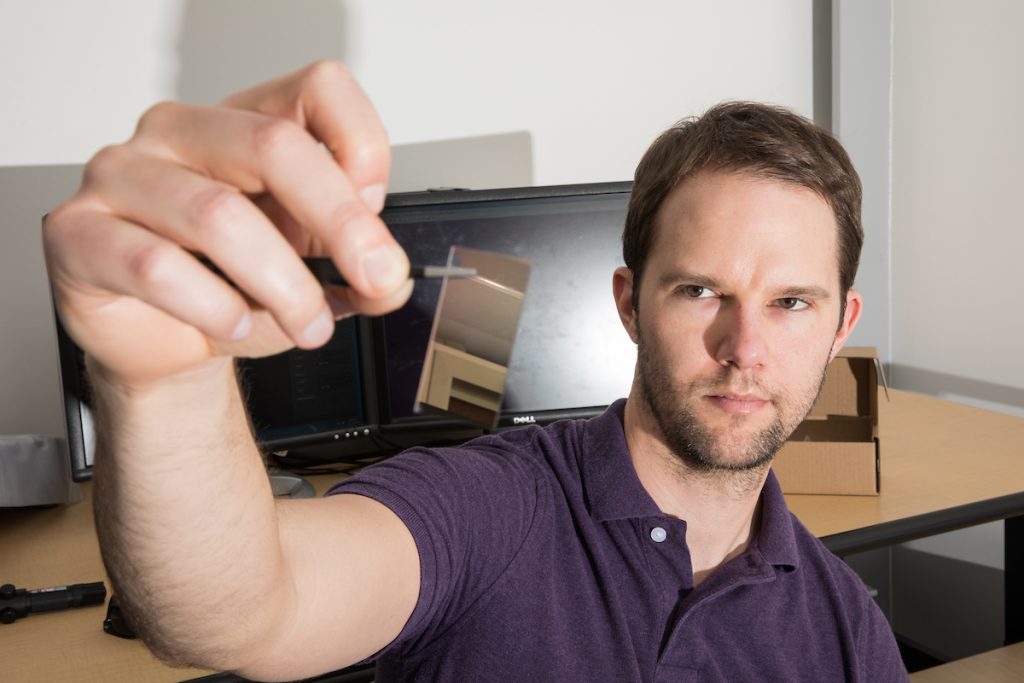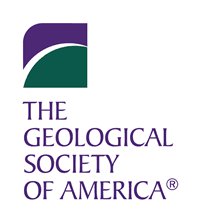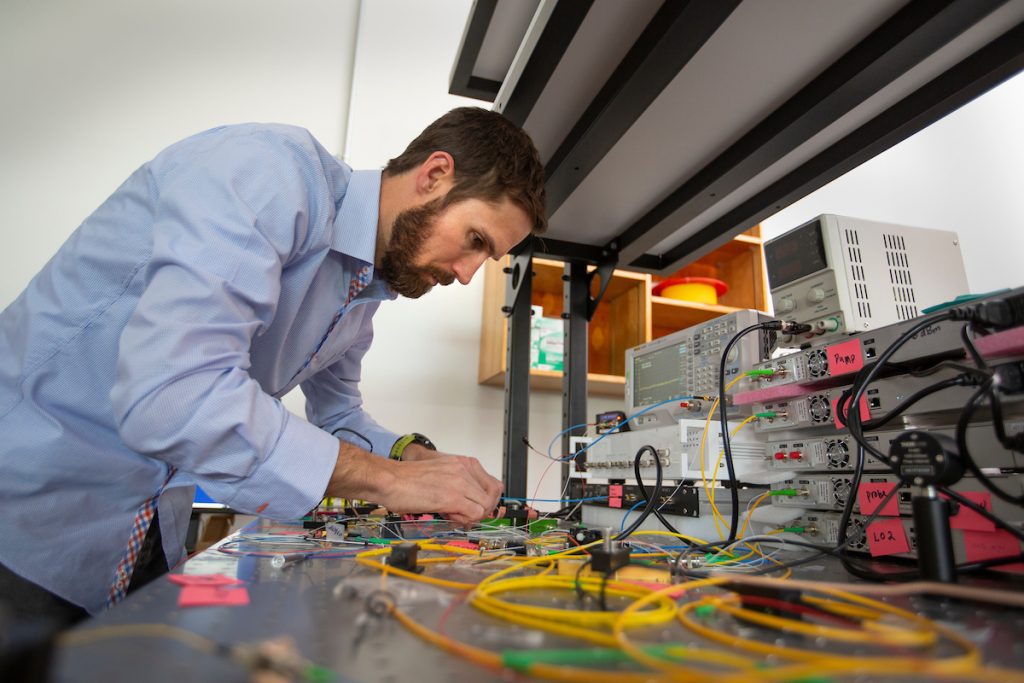
By Kerry Bennett
Office of the Vice President for Research
Much research in the field of astrobiology—the study of life in the universe—focuses on the habitability of extraterrestrial environments in our solar system and beyond. NASA’s Planetary Science and Technology from Analog Research (PSTAR) program sponsors research exploring the Earth’s extreme environments to develop a sound basis for conducting astrobiological research on other… Read more
NAU physicist receives prestigious 2018 Cottrell Scholar Award

By Julie Hammonds
Office of the Vice President for Research
A Northern Arizona University physicist who studies complex, hybrid nanomaterials has been recognized for his academic leadership and the quality and innovation of his research. The Research Corporation for Science Advancement (RCSA) recently named assistant professor John Gibbs a 2018 Cottrell Scholar. This award includes a three-year, $100,000 grant to advance his teaching and research.
One of only 24… Read more
NAU students, faculty participate in annual Geological Society of America meeting in Flagstaff

Dozens of Northern Arizona University faculty and students participated in the annual regional Geological Society of America Rocky Mountain/Cordilleran Joint Sectional meeting, held in Flagstaff in May.
The meeting consisted of short courses, field trips, student programs, exhibits and different types of sessions, many of which took place on the NAU campus. About 25 NAU students received free student registration, since the College… Read more
NAU scientist contributes to significant advance in silicon photonics

By Julie Hammonds
Office of the Vice President for Research
Northern Arizona University assistant professor Ryan Behunin collaborated with a team of physicists from Yale and the University of Texas at Austin in discovering an innovative way to manipulate light in silicon. By demonstrating a new type of laser that amplifies light with sound waves in a silicon chip, the team’s research… Read more
Life on Mars? NAU astronomy professor discusses NASA’s finding of organic matter on Red Planet

Mark Salvatore has been studying Mars’ surface for years, including through his work with the Curiosity rover. He talked to NAU News about NASA’s announcement Thursday that showed evidence of organic material and methane on Mars—both of which could be indicative of life on the Red Planet.
Salvatore is an assistant professor in the Department of… Read more
What are the Chances that the Next Generation LSST Could Find New Planets in the Solar System? – Universe Today
In the past few decades, thanks to improvements in ground-based and space-based observatories, astronomers have discovered thousands of planets orbiting neighboring and distant stars (aka. extrasolar planets). Strangely enough, it is these same improvements, and during the same time period, that enabled the discovery of more astronomical bodies within the Solar System.
These include the “minor planets” of Eris, Sedna, Haumea,… Read more